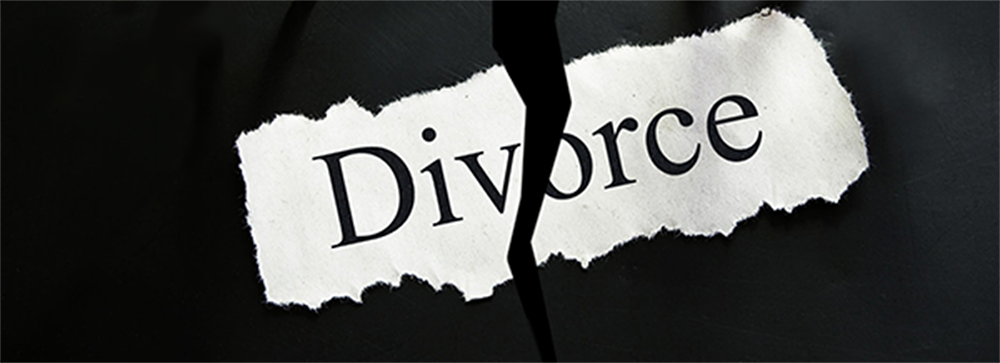Time for a Divorce?
Published: July 30, 2020
- Despite the uncertain economic environment, both private and public car dealers have demonstrated resiliency
- Well-capitalized dealers are buying stores
- If you’ve been contemplating retiring this might be your moment
The auto dealership business has been “berry berry good to you” to borrow from a Saturday Night Live skit from some years ago. To dealers, this is more than an investment. It’s not an exaggeration to say that most dealers are married to the business. Your employees are your second family. But has the time come for a divorce? There are several phenomena, a perfect storm, coalescing to maybe make the time ripe for your separation.
That’s not to say that the business is doomed. Not at all. Bel Air believes the current model of retail distribution will persevere. Well-capitalized, technology-focused dealers will overcome whatever challenges arise and will continue to thrive. The predicted contraction in the dealer body will only accrue to the benefit of survivors when normalcy returns.
Unexpectedly, the Covid-19 pandemic has brought about several events benefiting car dealers, both private and public. Despite the economic devastation brought to us by the pandemic, the government has ameliorated some of the damage by expanding unemployment benefits and distributing cash outright to citizens. PPP loans have, in some cases, bolstered the business.
Furthermore, ride-sharing is rejected amid the pandemic. Private vehicles are not just transportation, but also a “safe space.” Anybody who doesn’t already own one wants their own car. No more Uber. Low interest rates and factory incentives have fueled sales. Additionally, with low inventories of new cars, plus the relative affordability of used vehicles, folks are buying vehicles with the money they would have used for summer vacations. Altogether, vehicle grosses have been terrific and F&I per car is increasing. Maybe most importantly, dealers have significantly reduced their expense structure. The result has been, in some cases, record profitability.
Wall Street has rediscovered that car dealers are able to adjust rapidly to market conditions. We are in the middle of second quarter earnings announcements, and so far, the mostly positive earnings surprises have been well received, to put it mildly.
For example, Lithia stock price has grown from $67 to $238 in three months. In addition to ramping up its separate used car expansion (which we preordained in our earlier article on Vroom and Carvana), Lithia announced acquisitions of “value” dealerships for whatever that means.
Lithia’s continued enthusiasm for buying car dealerships is matched by numerous private dealership groups who have been reaching out to us looking for opportunities.
Investors have endorsed the strategy of acquiring new stores for growth, and with a rising stock price and low interest rates, it makes sense. It’s our opinion that the other public companies, seeing Wall Street’s embrace of Lithia’s strategy as well as Asbury’s acquisition of Park Place, will be encouraged to adopt similar strategies: They should use their low financing costs and high stock valuations to pay more for acquisition targets than they have been willing to do in the past. Private dealers armed with plenty of capital will have to do the same to remain players.
Despite the rosy picture being painted in some quarters, on balance we believe that economic headwinds will ultimately catch up to the business, at least in the short run. The current success of the business is a bit artificial, and the continued good news is a bit problematic.
In the interim, thanks to the persistence of Covid-19, our economy remains smothered and with the necessity to wear a mask, it can’t breathe. Normalcy seems further out than we thought just last month. Government can’t unendingly bail it out. The used car mania and pent up demand will be sated. The potential election of Joe Biden and the Democratic takeover of both the House and the Senate could lead to higher income taxes and a dramatic increase in capital gains taxes. Government regulations would certainly increase. Without belaboring the point, his would not be a business-friendly administration.
Car dealers are inveterate optimists, and many may still want to stay married to the business come what may. They mean to honor their vows. After all, a cure-all vaccine could be discovered before year-end. Interest rates, thanks to the Fed, could remain at historic lows and employment could rebound. Manufacturers could increase incentives and make cars more affordable while grosses bloom. Who knows, Trump could be reelected.
If you’re young enough, capitalized enough and energized enough, being a car dealer will ultimately be a rewarding proposition. We have no doubt. Just buckle up and conserve cash. The road ahead looks to be a bit bumpy.
For those car dealers who were contemplating retiring or aren’t having “fun” anymore, this may be your golden moment. Buyers are plentiful. Under the right circumstances, favorable blue-sky values can be had. Time is short for the sale process and manufacturers’ approval before year-end.
If you’ve fallen out of love and want to discuss your breakup, contact Bel Air. We keep confidentiality and will perform a preliminary valuation at no cost to you.
- Sophisticated Financial Advice
- Preeminent Strategic Advisors
Events
-
2023 NAMAD Annual Membership Meeting
October 10-13, 2023 | Miami Beach -
Gus Machado Golf Classic
October 16th, 2023 | Coral Gables, FL. -
2023 NADC Fall Conference
October 22-24, 2023 | Chicago -
2023 AICPA Auto Conference
October 22-24, 2023 | Las Vegas -
AUTOVATE 2023 – Driving the Future
December 6-8, 2023 | Scottsdale
Contact Us
9174 Highland Ridge Way
Tampa, FL 33647